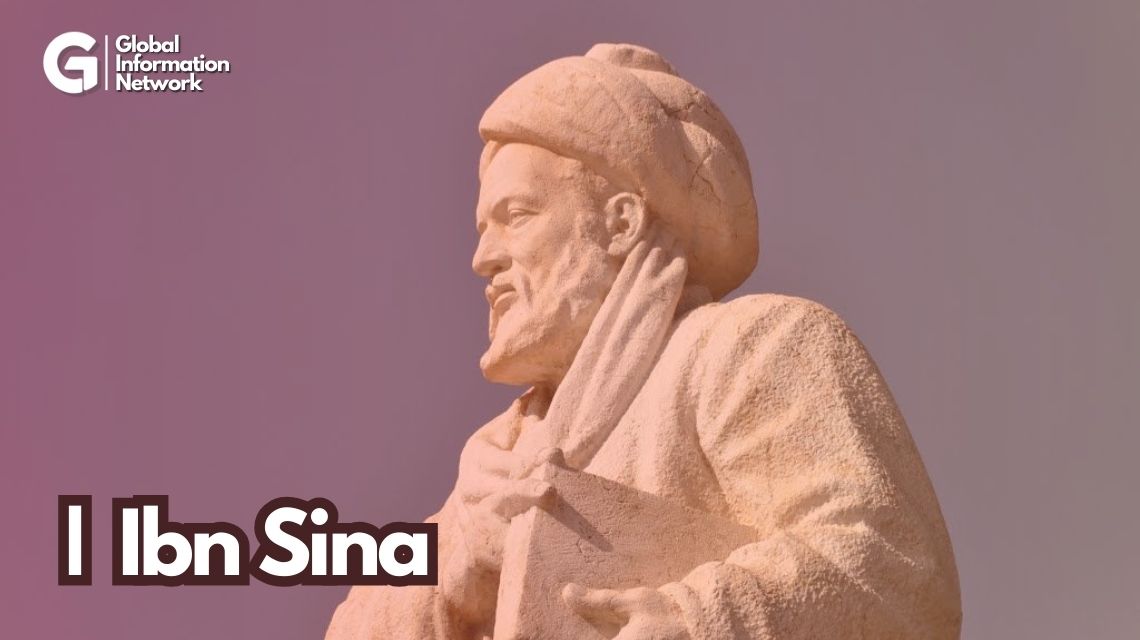Ibn Sina, also known as Avicenna in the Western world, is one of the most prominent figures in the history of science and philosophy. Born in 980 CE in Afshana, near Bukhara (present-day Uzbekistan), Ibn Sina made significant contributions to various fields, including medicine, philosophy, mathematics, astronomy, and chemistry. He is widely regarded as a polymath whose works helped shape the intellectual traditions of both the Islamic world and the European Renaissance.
Early Life and Education
Ibn Sina was born into a Persian family at a time when the Islamic Golden Age was flourishing. His father, Abdullah, was a respected government official and exposed young Ibn Sina to many intellectual discussions. At a very young age, Ibn Sina displayed an extraordinary talent for learning and memorized the Quran by the age of 10. He began studying a wide array of subjects, including logic, geometry, and Indian arithmetic.
{inAds}
At 16, he started focusing on medicine, which he mastered quickly. By the age of 18, he was already a practicing physician. His reputation grew after successfully treating the emir of Bukhara, which granted him access to the royal library, an immense source of knowledge. This exposure deepened his learning and contributed to the formation of his monumental works.
Contributions to Medicine
Ibn Sina is best known in the field of medicine for his magnum opus, The Canon of Medicine (Al-Qanun fi al-Tibb). This five-volume encyclopedia was not just a medical text but a complete system of medicine, encompassing medical theories, treatments, diagnoses, and pharmacology. It was based on his own experiences, combined with the medical knowledge of ancient Greek, Roman, and Islamic physicians. The Canon covered various aspects of medical science, including anatomy, pathology, and pharmacology, and became the standard medical text in the Islamic world and Europe for centuries.
Key concepts from the Canon include the description of contagious diseases, the importance of quarantine to prevent their spread, and the first documented descriptions of diseases like diabetes and tuberculosis. The work was so influential that it was translated into Latin and remained a key medical text in Europe until the 17th century.
Philosophy and Metaphysics
In addition to his medical achievements, Ibn Sina was a towering figure in the field of philosophy. His philosophical writings are primarily found in his work The Book of Healing (Kitab al-Shifa), which is an extensive philosophical and scientific encyclopedia covering topics like logic, metaphysics, and natural sciences.
{inAds}
In philosophy, Ibn Sina was heavily influenced by Aristotle and Neoplatonism, yet he introduced original ideas that would influence later philosophers, both in the Islamic world and in Europe. He developed a unique interpretation of Aristotelian philosophy, particularly in metaphysics, where he sought to reconcile philosophy with Islamic theology.
One of Ibn Sina's most significant contributions is his distinction between essence and existence. He argued that all beings have an essence (what they are) but only exist if their existence is granted by a necessary being, which he identified as God. This idea was foundational to the later development of Islamic and Christian scholasticism, influencing thinkers like Thomas Aquinas in the Christian world.
Mathematics and Astronomy
Ibn Sina also made significant contributions to mathematics and astronomy. In mathematics, he worked on problems related to algebra and geometry, building on the works of earlier scholars like Al-Khwarizmi. His works in this area influenced the development of later mathematical thought in the Islamic world.
In astronomy, Ibn Sina contributed to the understanding of celestial bodies, criticizing some of the models of Ptolemy, who had been the authority on astronomy in the Islamic world. He suggested that celestial phenomena should be studied more systematically and that the motions of planets and stars could not simply be explained by Ptolemaic models, foreshadowing later developments in the field.
Works in Logic and Epistemology
Ibn Sina also contributed extensively to logic and epistemology, which are key aspects of his philosophical framework. His approach to logic was rooted in Aristotle’s syllogistic but expanded beyond it. He introduced a theory of knowledge that involved the active intellect, a concept borrowed from Aristotle but reinterpreted in light of Islamic thought.
{inAds}
For Ibn Sina, the human mind could only attain knowledge through the guidance of the active intellect, which illuminates abstract concepts and enables individuals to grasp universal truths. This epistemological model was highly influential and shaped medieval philosophy in both the Islamic world and the West.
Legacy
Ibn Sina's influence extended far beyond his own time. His works were translated into Latin during the 12th century, becoming core texts in European universities. The Canon of Medicine was the most famous of these translations, and it shaped medical education in Europe for centuries. His philosophical works had a profound impact on Christian thinkers like Albertus Magnus, Thomas Aquinas, and Roger Bacon, who built upon his ideas.
In the Islamic world, Ibn Sina’s impact was similarly profound. He is considered one of the most influential philosophers of the Islamic tradition, with his ideas forming a central part of Islamic philosophy and science. His works were studied extensively by later Islamic scholars, and his contributions to medicine, in particular, were integrated into the medical practices of the time.
Conclusion
Ibn Sina’s life and work embody the spirit of the Islamic Golden Age, a period of flourishing intellectual and scientific achievement. His contributions to medicine, philosophy, mathematics, and astronomy had a lasting impact on both the Islamic world and Europe. His unique synthesis of Greek philosophy, Islamic thought, and empirical science created a framework that bridged multiple intellectual traditions, laying the groundwork for centuries of progress in various fields. As a polymath, Ibn Sina's legacy remains a testament to the power of knowledge and its ability to transcend cultural and temporal boundaries.

